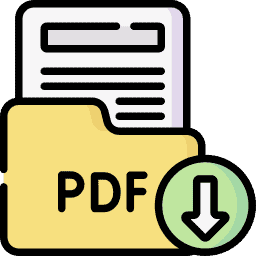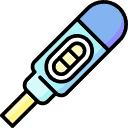Staring at that positive test triggers a mix of pure joy and absolute panic. We know the feeling well. You immediately switch from “Is this real?” to “Oh my gosh, I have so much to do.”
Pregnancy is a wild ride of hurdles, hormones, and milestones. While every woman’s journey is unique, having a roadmap helps calm the nerves.
This month-by-month checklist breaks down the trimesters so you know exactly what is coming next. From scheduling appointments to packing your hospital bag, we have you covered. At the end of each month, we included a quick journaling prompt to help you remember these fleeting moments.
Key Takeaways
- Track milestones: Use a monthly checklist to stay organized with medical appointments and baby prep.
- Prioritize health: Focus on prenatal vitamins, hydration, safe exercise, and a balanced diet early on.
- Plan ahead: Handle big tasks like nursery setup, pediatrician selection, and insurance checks during the second trimester energy boost.
- Final prep: Use the third trimester for packing bags, monitoring movements, and resting before delivery.
Printable Pregnancy Checklist PDF

Download Pregnancy Checklist PDF

First Trimester

You made it! Whether this was a carefully calculated plan or a total surprise, buckle up. The next three months can be a bit of a rollercoaster.
Some women feel incredibly sick, while others sail through with just a little fatigue. Emotionally, you might feel weepy one minute and ecstatic the next. It is all normal. Just remember: it is only temporary, and you are growing a human.
Month 1
The first month is all about processing the news and adjusting your daily habits.
- Share the news: Tell your partner the big news if they weren’t standing right there when you took your pregnancy test.
- Start vitamins: Begin taking prenatal vitamins immediately. You need extra folic acid, calcium, iron, and vitamin D right now (1).
- Prep for nausea: Stock up on ginger ale, saltines, or B6 supplements to combat morning sickness.
- Hydrate: Drink at least eight glasses of water daily. Dehydration can cause headaches and fatigue.
- Check caffeine intake: Begin limiting your caffeine to 200 milligrams per day, which is roughly one 12-ounce cup of coffee (2).
- Call the doctor: Schedule your first prenatal appointment. Providers often won’t see you until 8 to 10 weeks, but book the slot now. Ask about safe medications over the phone.
- Calculate dates: Estimate your due date based on the first day of your last period (subtract three months, add seven days).
- Document the bump: Take a “before” picture if you plan to track how your body changes month by month.
- Quit smoking: If you smoke or vape, stop immediately to protect the baby’s lung development.
- Clean up your diet: Focus on whole foods and lots of fruits. Avoid unpasteurized cheeses, deli meats, and high-mercury fish (3).
- Move your body: Aim for 30 minutes of light exercise a few days a week. Walking is great for blood flow and mental health.
- Avoid the litter box: Hand this chore to your partner. Cat feces can carry toxoplasmosis, which is dangerous for the baby (4).
- Cool down: Start avoiding hot baths, saunas, and hot tubs. Raising your core body temperature too high carries risks.
Journaling Question
Month 2
Reality sets in this month. You might feel more tired than usual as your body works overtime.
- Visit the doctor: Attend your first prenatal checkup. Bring a list of questions and your family health history.
- Download apps: Find a pregnancy tracking app to see weekly updates on your baby’s size.
- Find a tribe: Join a “Due Date” group on Facebook or an online birth club to connect with others on the same timeline.
- Prioritize rest: You are growing a placenta, which is exhausting. Aim for 8 hours of sleep and nap when you can.
- Check insurance: Review your policy to see what maternity care is covered. This helps you budget for your birth plan.
- Manage food aversions: If sickness is rough, stick to bland, small meals like rice, bananas, and toast (the BRAT diet).
- Consider genetic testing: Ask your doctor about NIPT (Non-Invasive Prenatal Testing) screening, which can be done as early as 10 weeks.
Journaling Question
Month 3
You are nearing the end of the first trimester, and hopefully, the nausea is lifting.
- Announce the news: Many couples wait until the 12-week mark to tell extended family and social media.
- Tackle heartburn: Keep Tums handy. Digestive changes are common now.
- Shop for comfort: Your jeans might not button anymore. Buy a few staples like maternity underwear or leggings.
- Budget for baby: List out expenses and essential gear. Determine what you can borrow versus what you need to buy new.
- Speak with HR: Talk to your boss about maternity leave policies and when you plan to sign off.
- Moisturize: Rub cocoa butter or lotion on your hips and belly to keep skin elastic and help prevent stretch marks.
- Adjust sleep positions: Stop sleeping flat on your back to maintain proper blood flow to the baby. Side sleeping is best.
- See the dentist: Hormone surges can cause gum inflammation (pregnancy gingivitis). Schedule a cleaning now.
- Be kind to yourself: Mood swings are real. If you feel weepy or irritable, know it is the hormones talking.
Journaling Question
Second Trimester

Welcome to the “Golden Period.” For many women, the second trimester is the sweet spot. The morning sickness usually fades, and you aren’t yet feeling the heavy discomfort of the final months.
You likely have more energy now, so use it to tackle the big to-do items.
Month 4
Your bump is likely popping out, making things feel very real!
- Brainstorm names: Start a list of names you love. Discuss them with your partner (or keep them secret).
- Start the nursery: Clear out the spare room and begin planning the nursery while you have the energy to paint or move furniture.
- Build a registry: Create your baby registry. Include items at various price points for your friends and family.
- Breathe easier: The risk of miscarriage drops significantly after the first trimester. Try to let go of some anxiety.
- Find out the gender: If you want to know the sex, you can usually find out via ultrasound between 16 and 20 weeks.
Journaling Question
Month 5
This is a major month for medical milestones and planning.
- Schedule the anatomy scan: This detailed ultrasound happens around 20 weeks to check the baby’s development.
- Sign up for classes: Look for childbirth, breastfeeding, and infant CPR classes. They fill up fast!
- Get comfortable: Invest in a pregnancy pillow to support your hips and belly at night.
- Protect the surprise: If you don’t want to know the gender, remind your ultrasound tech before the scan begins.
- Research birth options: Decide between a hospital, birthing center, or home birth. Ensure you understand the protocols for each.
- Plan sleeping arrangements: Decide if you will room-share with a bassinet or use the crib in the nursery.
- Frame the sonogram: Keep a copy of your anatomy scan picture for your baby book.
Journaling Question
Month 6
You are growing fast, and your baby is starting to hear sounds from the outside world.
- Celebrate viability: By the end of this month (24 weeks), babies have a much higher chance of survival if born early.
- Order furniture: Cribs and gliders can have long shipping times. Order them now to ensure they arrive before the baby.
- Upgrade footwear: Feet swelling? You might need shoes a half-size larger or with better arch support.
- Declutter: Do a deep clean and organization sweep of your house. You won’t want to do this later.
- Take the glucose test: Between 24 and 28 weeks, you will drink a sugary drink to screen for gestational diabetes.
- Check iron levels: Your doctor will likely run blood work to check for anemia.
- Tour daycares: If you plan to return to work, get on daycare waitlists now. In some cities, spots fill up months in advance.
- Go on a “Babymoon”: Take a weekend trip with your partner. Travel restrictions often kick in during the third trimester.
- Secure support: Interview and hire a doula if you want extra support during labor.
Journaling Question
Third Trimester

The home stretch! You are physically larger, maybe a little grumpy, and definitely ready to meet your baby.
Appointments become more frequent now (every two weeks, then every week). Use this time to pamper yourself and finalize the logistics.
Month 7
It is time to get practical.
- Pack the bag: Get your hospital bag ready. Include toiletries, a robe, and warm socks with grips.
- Write a birth plan: Outline your preferences for pain management and labor, but remain flexible. Print copies for your medical team.
- Pre-register: Fill out hospital admission forms now so you aren’t doing paperwork while having contractions.
- Choose a doctor: Interview and select a pediatrician. Make sure they accept your insurance.
- Finish the nursery: Assemble the crib and set up the changing station. Try to finish heavy lifting before month 8.
- Start kick counts: Doctors usually recommend monitoring baby’s movements daily starting around 28 weeks.
Journaling Question
Month 8
You are getting close. The baby is gaining weight rapidly, and so are you.
- Get the Tdap shot: This vaccine protects your baby from whooping cough and is usually given between 27 and 36 weeks.
- Prepare for multiples: If you are having twins, have your bags packed early, as they often arrive before 40 weeks.
- Check your rings: If your hands are swelling, take off your rings now before they get stuck.
- Attend the shower: Enjoy your baby shower! Ask a friend to record who gave which gift to make thank-you notes easier.
- Prevent constipation: Iron supplements can slow things down. Eat fiber and drink water to avoid hemorrhoids and constipation.
- Learn labor signs: Know the difference between Braxton Hicks and real labor (rhythmic contractions, pelvic pressure, or water breaking).
- Work handover: Create a document outlining your tasks for colleagues covering your maternity leave.
- Plan pet care: Decide who will watch your dog or cat when you rush to the hospital.
- Install the car seat: This is non-negotiable. You cannot take the baby home without a properly installed seat. Visit a fire station for a safety check if needed.
- Do the laundry: Wash sheets, blankets, and clothes in fragrance-free detergent to protect sensitive newborn skin.
Journaling Question
Month 9
Any day now!
- Finalize paperwork: Ensure FMLA or short-term disability forms are submitted to your employer.
- Shop last minute: Use completion discounts to buy remaining registry items you didn’t receive.
- Order a breast pump: Contact your insurance to get your free breast pump shipped to you.
- Rest: Elevate your swollen feet. Read, watch movies, and sleep as much as possible.
- Date night: Enjoy a quiet dinner with your partner. It might be the last one for a while.
- Self-care: Get a haircut, a pedicure, or a prenatal massage.
- Write thank-yous: Finish your notes for shower gifts before the baby arrives and life gets chaotic.
- Meal prep: Cook and freeze casseroles or soups. Stock the pantry with one-handed snacks (bars, nuts) for nursing.
- Set boundaries: Tell family if you want visitors at the hospital or if you prefer a week of privacy at home first.
- Pick the name: Finalize your choice (or your top two options) so you are ready to fill out the birth certificate.
- Time it: Track contractions. When they follow the 5-1-1 rule (5 minutes apart, lasting 1 minute, for 1 hour), head to the hospital.
Journaling Question












